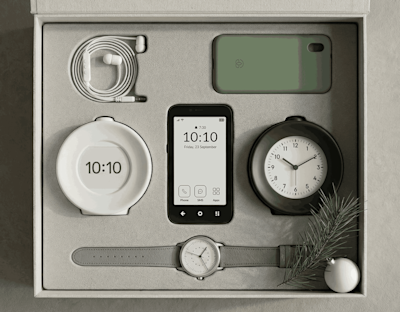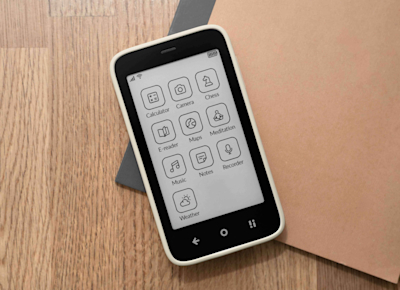
What is Revenge Bedtime Procrastination and how to overcome it
Staying up too late to make up for the lack of free time?
Life can be challenging. Balancing work, family responsibilities, and endless to-do lists can leave little room for self-care. At the end of such demanding days, it’s easy to find ourselves mindlessly drawn to our phones, endlessly scrolling through social media or binge-watching TV shows, basically anything to make the day feel a little longer. Steaming, swiping, and tapping away, endlessly.
Despite feeling physically and mentally drained, we push our bedtime later, knowing deep down that sleep would be more beneficial.
This behavior, known as Revenge Bedtime Procrastination, stems from a desire to reclaim personal time after a day filled with obligations.
Ironically, it often leaves us feeling even more exhausted, overwhelmed, and trapped in a vicious cycle of fatigue and regret.
True rest is not found in stolen hours of late-night scrolling, but in the mindful moments we intentionally create for ourselves. Honor your need for sleep. It’s a quiet act of self-care that nurtures your well-being day and night.
Why Do We Engage in Revenge Bedtime Procrastination?
Revenge bedtime procrastination isn’t just about staying up late. It’s a response to the frustration of not having control over your daily schedule. With overflowing commitments and constant digital distractions, bedtime becomes the only window left for personal time. However, instead of feeling rejuvenated, this habit disrupts our well-being even more.
Our minds crave control and leisure time. When we deny ourselves downtime during the day, our brains fight back, demanding relaxation, even if it means sacrificing sleep.
This sense of "revenge" is a subconscious way of asserting power over our schedule, a small rebellion against the endless demands of modern life.
The Hidden Costs of Staying Up Late
Staying up late disrupts our natural sleep cycles and makes it harder to achieve restful sleep. Over time, this lack of sleep can lead to:
Decreased focus and productivity
Heightened stress levels
Emotional imbalance and irritability
Negative effects on health, such as weakened immunity and increased risk of cardiovascular issues.
Ultimately, what seems like a harmless nighttime indulgence has a ripple effect on our overall well-being.
A Mindful Approach to Breaking the Cycle
At Mudita, we believe that a healthy relationship with time and technology begins with mindful choices.
Here’s are some simple strategies to approach revenge bedtime procrastination the mindful way:
Prioritize Rest as Self-Care View sleep as a nurturing act of self-care, not something to delay or push aside. Embrace the mindset that rest is an essential part of feeling balanced and centered. Think of it as a way to support, rather than recover from, your daily life.
Reclaim ‘Me Time’ During the Day Incorporate small, intentional breaks into your routine. Enjoy a quiet cup of tea, go for a short walk, or spend a few minutes journaling. If you meet your need for personal time during the day, you’ll be less likely to steal it back at night.
Create a Relaxing Offline Evening Routine Adopt calming rituals that help you transition from a busy day to a restful night. Instead of screens, try reading a book, taking a warm bath, or practicing breathing exercises. Using a mindful alarm clock like Mudita Bell or Mudita Harmony can also be a part of this ritual. The Mudita Bell is a minimalist, analog alarm clock that helps you start and end your day without unnecessary digital disruptions, promoting a more restorative night’s rest. Similarly, the Mudita Harmony, our unique E Ink alarm clock, not only avoids harsh blue light, but also includes added features specifically designed to promote better sleep hygiene and healthy sleep habits.
Use Technology Mindfully Choose tools that support your well-being, not those that encourage mindless scrolling. Mudita’s minimalist devices, like Mudita Kompakt or the Mudita Harmony clock, are designed to reduce digital clutter and help you focus on what truly matters, including quality sleep.
Set Boundaries with Your Daytime Schedule Learn to say ‘no’ to non-essential tasks and create space for personal time. Healthy boundaries ensure that your day doesn’t bleed into your night, leaving you yearning for stolen moments of freedom when you should be resting. Here’s the thing, very often, we really take too much on our place because we’re afraid to say ‘no,’ then we end up with too many things to do and not enough time to do it.
Reflect on Your Evening Patterns When you catch yourself procrastinating bedtime, ask: What am I truly looking for right now? Understanding your needs can help you identify healthier ways to meet them without sacrificing sleep.
Breaking the Cycle
Getting back on track and breaking the revenge bedtime procrastination is less about strict rules and more about developing a nurturing, yet at the same time, self-compassionate approach to your time. Recognizing this pattern offers an opportunity for self-reflection.
By valuing sleep and carving out space for yourself during the day, you’ll feel more fulfilled, energized, and in control, all without the midnight regrets.
Remember: a balanced life starts with mindful choices, day and night.
Choose to honor your rest. Choose simplicity. Choose well-being.
If you’d like to read more about topics connected to the subject of better sleep, please take a look at our Sleep Better page for more information and helpful resources.
Read also:
Also consider joining our Mudita Community on our forum.
Related stories

Introducing 8 Days of Mindful Gifting
Mudita presents 8 Days of Mindful Gifting. One new promotion each day, Dec 5–12 at 12:00 CET. Visit daily for meaningful, intentional gift ideas.

How Mudita Kompakt Apps Support a Mindful and Intentional Life
Mudita Kompakt offers mindful E ink apps designed for intentional living with offline navigation, eReader, meditation, music, and mor, without distractions.

Discover What’s New in Mudita Kompakt OS K 1.3.0
MuditaOS K 1.3.0 adds music playlists, manual network selection, better security, SMS stability & photo preview/ downloading in Mudita Center.
If you'd like to receive the best stories from our blog, keep up to date with our progress and get notified about our product releases and special discounts.